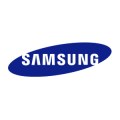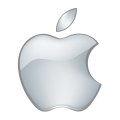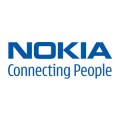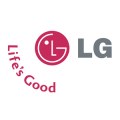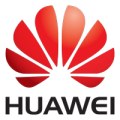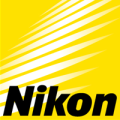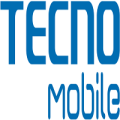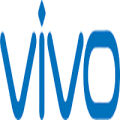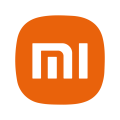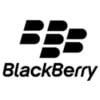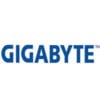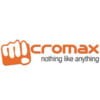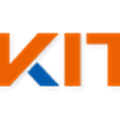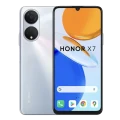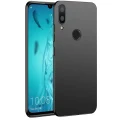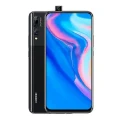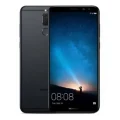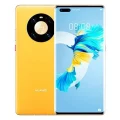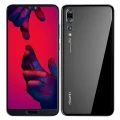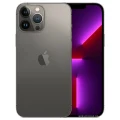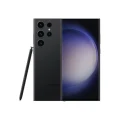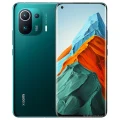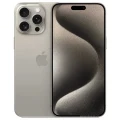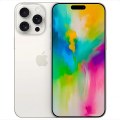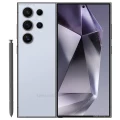- Awesome page
- Latest Mobile
- Smartphones
- Google Pixel 4a
Google Pixel 4a
Google Pixel 4a Price in Bangladesh
Google Pixel 4a price in Bangladesh is BDT 35,000. This smartphone features a 5.81-inch IPS LCD capacitive touchscreen with a screen-to-body ratio of approximately 83.3% and a resolution of 1080 x 2340 pixels, resulting in about 443 ppi density. It is powered by an octa-core Qualcomm SDM730 Snapdragon 730 processor, which includes 2 cores at 2.2 GHz (Kryo 470 Gold) and 6 cores at 1.8 GHz (Kryo 470 Silver), built on an 8 nm process. The device comes with 6 GB of RAM and 128 GB of internal storage, which cannot be expanded with external storage. The stylish design includes a 12.2 MP rear camera and an 8 MP front camera for selfies. It is equipped with a standard 3140 mAh Li-polymer battery.
Specifications
General
| Model | Google Pixel 4a |
| Announced | 2020, August 03 |
| Released | 2020, August 20 |
| Status | Available |
| Unofficial price | 6GB 128GB ৳35,000 |
Design
| Dimensions | 144 x 69.4 x 8.2 mm (5.67 x 2.73 x 0.32 in) |
| Weight | 143 g (5.04 oz) |
| Colors |
Just Black |
Network
| Technology | GSM / HSPA / LTE |
| 2G Network |
GSM 850 / 900 / 1800 / 1900 - SIM 1 & SIM 2 |
| 3G Network |
HSDPA 850 / 900 / 1900 / 2100 |
| 4G Network |
1, 2, 3, 4, 5, 7, 8, 12, 13, 14, 17, 18, 20, 25, 26, 28, 29, 30, 38, 39, 40, 41, 66, 71 |
| GPRS <strong>GPRS</strong> (General Packet Radio Service) is a packet oriented mobile data service on the 2G and 3G cellular communication system's global system for mobile communications (GSM), Generally, GPRS is used for the purpose of wireless data transfer, such as sharing pictures and videos or browsing the Internet via a mobile phone connection. | |
| EDGE <strong>EDGE</strong> (Enhanced Data GSM Environment) is a wireless network technology generally considered the next step in the 2G network offers data transfer rates up to four times faster than ordinary GSM networks, Generally, EDGE is used for the purpose of wireless data transfer, such as sharing pictures and videos or browsing the Internet via a mobile phone connection. | |
| Speed | HSPA 42.2/5.76 Mbps, LTE-A (3CA) Cat12 600/75 Mbps |
Display
| Display Type <strong>Display Technology => </strong> A number of display technologies and types used in mobile phones => TFT (Thin Film Transistor), IPS (In-Place Switching), OLED (Organic Light Emitting Diode), AMOLED (Active-Matrix Organic Light-Emitting Diode), Super AMOLED (an even advanced version of AMOLED), Resistive Touchscreen (Resistive touchscreens contain two layer of conductive material with a very small gap between them which acts as a resistance), Capacitive Touchsceen (Capacitive touchscreen technology consists of a layer of glass coated with a transparent conductor) | IPS LCD capacitive touchscreen, 16M colors |
| Size | 5.81 inches, 83.2 cm2 (~83.3% screen-to-body ratio) |
| Resolution | 1080 x 2340 pixels, 19.5:9 ratio (~443 ppi density) |
| Features |
Corning Gorilla Glass 3 Always-on display HDR |
Camera
Main camera
| Camera Setup | Single |
| Primary <strong>Camera</strong> is able to capture photographs and usually videos, The most important characteristics of a camera are the resolution (measured in megapixels), lens focus type (fixed or automatic), higher megapixel cameras are known to capture higher quality photos, but not always a good measurement of the photos quality. |
12.2 MP, f/1.7, 27mm (wide), 1/2.55&amp;quot;, 1.4µm, dual pixel PDAF, OIS |
| Features |
LED flash, Auto-HDR, panorama |
| Video | 2160p@30fps, 1080p@30fps; gyro-EIS |
Selfie camera
| Camera Setup | Single |
| Primary <strong>Camera</strong> is able to capture photographs and usually videos, The most important characteristics of a camera are the resolution (measured in megapixels), lens focus type (fixed or automatic), higher megapixel cameras are known to capture higher quality photos, but not always a good measurement of the photos quality. |
8 MP, f/2.0, 24mm (wide), 1.12µm |
| Features |
Auto-HDR |
| Video | 1080p@30fps |
Hardware
| Chipset <strong>Chipset</strong> is a group of integrated circuits designed to perform one or a more dedicated functions, often with real time computing constraints, Popular smartphones are equipped with more advanced embedded chipsets that can do many different tasks depending on their programming. | Qualcomm SDM730 Snapdragon 730 (8 nm) |
| CPU <strong>CPU</strong> (Central Processing Unit) mostly known as processors, CPU processes instructions in order to carry out certain functions that make your device operate properly. Processors are often described as the brain of computers, smartphones and tablets, Smartphones and tablets rely on processors to carry out their every task, Processors are an incredibly important factor in selecting any type of computing device, including your smartphone. | Octa-core (2x2.2 GHz Kryo 470 Gold & 6x1.8 GHz Kryo 470 Silver) |
| GPU <strong>GPU</strong> (Graphics Processing Unit) is a single-chip processor designed to rapidly manipulate and alter memory to accelerate the creation of images in a frame buffer intended for output to a display, This includes things such as lighting effects, object transformations, and 3D motion. | Adreno 618 |
| RAM (Memory) <strong>RAM</strong> (Random Access Memory) is a type of computer memory that can be accessed randomly, any byte of memory can be accessed without touching the preceding bytes that allows information to be stored and accessed quickly from random locations. RAM is the most common type of memory found in computer systems, smartphones, tablets and other electronic devices. | 6 GB |
| Internal Storage <strong>Internal Storage</strong> is a data storage space (flash memory) mostly used in smartphones, tablets and other electronic devices where operating system, apps, music, photos, videos, files and other user data Is stored. | 128 UFS 2.1 |
| Sensors <strong>Sensors</strong> are electronic components that detects and responds to some type of input from the physical environment. The specific input could be light, heat, motion, moisture, pressure and location, The output is generally a signal that is converted to use in computing systems, a location sensor, such as a GPS receiver is able to detect current location of your electronic device. |
Fingerprint (rear-mounted), accelerometer, gyro, proximity, compass, barometer |
Connectivity
| Bluetooth <strong>Bluetooth</strong> is a wireless communications technology for exchanging data between mobile phones, headsets, computers and other network devices over short distances without wires, Bluetooth technology was primarily designed to support simple wireless networking of personal consumer devices. | 5.0, A2DP, LE |
| Infrared <strong>Infrared</strong> connectivity is an old wireless technology used to connect two electronic devices. It uses a beam of infrared light to transmit information and so requires direct line of sight and operates only at close range. | |
| USB | 3.1, Type-C 1.0 reversible connector |
| GPS <strong>GPS</strong> The Global Positioning System is a satellite-based radio navigation system, GPS permits users to determine their position, velocity and the time 24 hours a day, in all weather, anywhere in the world, In order to locate your position, your device or GPS receiver must have a clear view of the sky. | Yes, with A-GPS, GLONASS, BDS, GALILEO |
| NFC <strong>NFC</strong> (Near field communication) is a set of standards for smartphones and similar devices to establish peer-to-peer radio communications with each other by touching them together or bringing them into proximity, usually no more than a few inches. |
Battery
| Battery Type <strong>Battery Type => </strong> Cell phones run on various kinds of batteries depending on the manufacturer, phone size or shape and features. There are basically four types of cell phone batteries => Lithium Polymer, Lithium Ion, Nickel Metal Hydride and Nickel Cadmium. | Non-Removable Li-Po |
| Capacity <strong>Battery Capacity</strong> is a measure (typically in Amp-hr) of the charge stored by the battery, and is determined by the mass of active material contained in the battery. The battery capacity represents the maximum amount of energy that can be extracted from the battery under certain conditions. | 3140 mAh |
| Charging Charging | Fast charging 18W USB Power Delivery 2.0 |
Google Pixel 4a Review The Thrill of Affordable Excellence
The smartphone market is bustling with innovation, and among the buzzworthy entrants is the Google Pixel 4a. Combining affordability with powerful features, this device is a game-changer for tech enthusiasts, smartphone shoppers, and loyal Google fans. In this comprehensive review, we’ll dissect the Pixel 4a, exploring its specifications, performance, and standing against competitors. Ready to discover if this could be your next smartphone? Let’s find out.
Unveiling the Google Pixel 4a
Released as a budget-friendly alternative, the Google Pixel 4a has quickly garnered attention. Positioned as an affordable yet capable device, it aims to provide a premium experience without breaking the bank. But what makes this phone stand out in an oversaturated market?
The Pixel 4a is designed for those who appreciate quality but are budget-conscious. It delivers a no-nonsense approach, focusing on what truly matters to users—camera quality, battery life, software experience, and overall value. Google’s aim with the Pixel 4a is clear—to make high-quality technology accessible to a broader audience.
Key Features and Specifications
Understanding the Pixel 4a requires a deep dive into its features and specs. The device boasts a 5.81-inch OLED display with a resolution of 2340 x 1080 pixels. This results in sharp, vibrant visuals perfect for media consumption and daily use.
Under the hood, the Pixel 4a is powered by the Qualcomm Snapdragon 730G chipset, paired with 6GB of RAM. This combination ensures smooth performance, whether you’re multitasking or enjoying graphic-intensive games. Storage is ample, offering 128GB with no option for expansion—though this should suffice for most users.
The phone also includes a 3,140mAh battery, promising all-day usage. Additionally, it features an 8MP front camera and a 12.2MP rear camera, which we’ll explore further in the next section. The Pixel 4a runs on Android 10, upgradable to later versions, ensuring you stay current with the latest software updates.
Camera Performance
One of the Pixel 4a’s standout features is its camera. Google has consistently impressed with its camera technology, and the Pixel 4a is no exception. The 12.2MP rear camera might seem modest on paper, but it’s the software that sets it apart.
Thanks to Google’s computational photography, the Pixel 4a delivers stunning photos in various lighting conditions. The Night Sight feature excels in low-light scenarios, capturing details that other phones miss. HDR+ enhances photos with balanced exposure and vibrant colors, making every shot Instagram-worthy.
The front 8MP camera is no slouch either. It provides clear and detailed selfies, perfect for social media enthusiasts. Video recording capabilities are robust, supporting 4K at 30fps, ensuring your videos are sharp and smooth.
Battery Life
Battery life is a crucial aspect of any smartphone, and the Pixel 4a doesn’t disappoint. The 3,140mAh battery might seem average, but the phone’s optimization ensures it lasts through the day.
Thanks to the power-efficient Snapdragon 730G and Google’s software tweaks, the Pixel 4a offers impressive battery endurance. Whether you’re streaming videos, browsing the web, or gaming, you can trust the Pixel 4a to keep up with your daily demands.
Charging is convenient with the included 18W fast charger. While it doesn’t support wireless charging, the fast-charging capability ensures you spend less time tethered to an outlet and more time using your device.
Software Capabilities
Google’s software experience is another area where the Pixel 4a shines. Running on a clean, bloatware-free version of Android, the phone offers a smooth and intuitive user interface.
Frequent software updates are a significant advantage of owning a Pixel device. You get the latest Android features and security patches promptly, ensuring your phone remains secure and up-to-date. The Google Assistant integration is seamless, making it easy to perform tasks using voice commands.
Exclusive features like the Recorder app, which provides real-time transcription, and the Personal Safety app, which ensures help is just a tap away, add extra value. Google’s commitment to enhancing the software experience makes the Pixel 4a a joy to use.
Comparing with Competitors
To truly appreciate the Pixel 4a, it’s essential to compare it with other smartphones in its price range. Competitors like the iPhone SE (2020) and OnePlus Nord offer strong alternatives, but the Pixel 4a holds its ground well.
The iPhone SE boasts a more powerful processor and Apple’s ecosystem, but it falls short in camera performance compared to the Pixel 4a. The OnePlus Nord offers a higher refresh rate display and more cameras, but Google’s superior software optimization and camera capabilities give the Pixel 4a an edge.
Ultimately, the Pixel 4a’s combination of camera prowess, clean software experience, and timely updates make it a compelling choice among budget smartphones.
Real-World User Experience
Hearing from real users provides valuable insights into the Pixel 4a’s performance. Tech enthusiasts and early adopters consistently praise the phone’s camera, noting how it captures stunning photos effortlessly.
Users also appreciate the device’s compact size and lightweight design, making it easy to use one-handed. The snappy performance, thanks to the Snapdragon 730G, ensures smooth operation even during intensive tasks.
Feedback highlights the battery life as adequate, with most users comfortably getting through a day of usage. The lack of wireless charging and water resistance are minor drawbacks, but they don’t overshadow the overall positive experience.
Maximizing the Pixel 4a’s Features
To get the most out of your Pixel 4a, consider these practical tips. First, explore the camera features extensively. Experiment with Night Sight, Portrait Mode, and HDR+ to capture stunning photos in various conditions.
Keep your software up-to-date by enabling automatic updates. This ensures you always have the latest features and security enhancements. Utilize Google Assistant for hands-free control and productivity boosts.
Lastly, invest in quality accessories like a protective case and screen protector to keep your Pixel 4a in pristine condition. These small steps can significantly enhance your ownership experience.
Conclusion
The Google Pixel 4a stands as a testament to Google’s ability to deliver high-quality technology at an affordable price. With its impressive camera, clean software experience, and reliable performance, it offers exceptional value for money.
For tech enthusiasts, smartphone shoppers, and Google fans, the Pixel 4a is a worthy contender in the budget smartphone segment. Its blend of features and affordability makes it a practical choice for those seeking excellence without the premium price tag.
If you’re considering a new smartphone, the Pixel 4a deserves your attention. And if you’ve already joined the Pixel family, we’d love to hear your thoughts and experiences in the comments below. Happy exploring!
